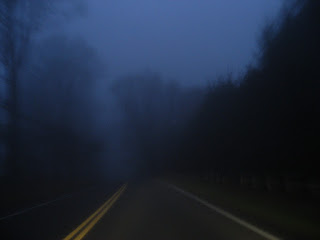Saturday, June 25, 2022
Monastic Joy
Wednesday, June 15, 2022
Another Bold Stroke from the Pope of the Peripheries
The Dicastery in reference is run by de Aviz and Carballo, whom Dr. Kwasniewski referred to as "progressivist thugs", a sentiment I completely agree with. The chances of any traditional association receiving the requisite institutional approval from these gatekeepers is nonexistent.
I offer a few reflections on this development:
1) The Total Overthrow of Institutional Credibility
But if no more traditional institutes are allowed to be erected by bishops on their own initiative, how shall we escape the letter of the law? The answer is simply that we will have recourse to organizational models not envisioned by the current canonical strictures. I refer you to an article called "Into the Woods" I wrote in 2018 in the aftermath of the Congregation for the Institutes of Consecrated Life document Cor Orans, which essentially revolutionized the way women's religious communities governed themselves. The gist of the essay is that as the institutional Church becomes more untrustworthy under the current zeitgeist, traditional movements will be more about living a certain lifestyle than obtaining any specific ecclesiastical status. The Vatican might regulate the episcopal erection of new religious institutes, but it can do nothing against a group of individuals living together and making their own private vows. It may prohibit the creation of a new priestly society dedicated to the Traditional Latin Mass, but it cannot prohibit priests who love the Traditional Latin Mass from organizing on their own outside of official channels. It may prohibit the Latin Mass being said in diocesan parishes, but it cannot prevent it being said in private venues. The Church can shove the NAB and the Liturgy of the Hours at me as much as they please, but they can't prevent me gathering with likeminded men to pray the traditional Divine Office in Latin. Whatever we want done, we are going to have to do it ourselves—not by going "against" ecclesiastical authority in any schismatic sense, but by merely operating in spheres where ecclesiastical authority has no say. This is how Christendom was built; St. Benedict had no episcopal letter when he clambered up the slopes of Mount Subiaco and wandered into a cave.
In case anyone had any shred of doubt left, this should make it perfectly clear that Pope Francis's ideas about "decentralization" and "synodality" are farcical. The same pope who allegedly wants to allow local bishops' conferences to make true doctrinal judgments also wants to tell bishops what organizations they can and cannot erect in their own dioceses. This is the same pontificate that, in the explanatory letter after Traditionis Custodes, purported to tell individual parishes what they could and could not advertise on the parish website or in the parish bulletin. The same pontificate who has systematically dismantled the independence of various religious orders and trampled on their charisms. Decentralization and synodality indeed!
4) We Follow the Way
For us, though, this is ultimately about a way of life, not who has institutional control. I don't mean to downplay the importance of institutional control; and God willing, one day, the institution will be better, the ship's course will be righted, and mother will not be drunk anymore. Until that happens, however, what we are seeking is a way of life. In the New Testament and the earliest Christian writings, the Catholic faith was referred to as "the Way," and Christians were called "followers of the Way." This sort of thinking has greatly benefitted my own spiritual life during these difficult times. I am seeking a city whose builder and maker is God (cf. Heb. 11:10). The regime the Church finds itself under can annoy me, make me drive a little farther, make me jump through a few more hoops, make me roll my eyes, but it can't ultimately stop me from following the path our Lord Jesus has laid out. It cannot stop me from living the Faith of our ancestors and loving our traditions.
Stand Fast
Wednesday, June 08, 2022
What a Dark Night Is and Is Not
Thursday, June 02, 2022
Stop Trying to Make Deacon's Wives a Thing
The image for this post is taken from my diocesan magazine. The article interviews five women who are married to permanent deacons and discusses how that affects their marriages and their work in their parishes.
A few out of context quotes do not give the big picture, so I encourage you to read the articles linked above.
Two points:
First, I understand that none of these statements imply there is any sort of institutional "deacon's wife ministry." And some of them can be taken innocuously enough; obviously before a married man enters the permanent diaconate, he and his wife together should discern what that vocation would mean for their marriage. So I don't mean to make a mountain out of a molehill, or infer nefarious meanings to these statements that the women clearly do not mean. Even so, one cannot deny there is a substantial blurring of the lines between clergy and laity demonstrated here. While a husband and wife must discern together what a diaconal ordination will mean for their marriage, it is the husband alone who has the vocation to Holy Orders. While a deacon's wife may be laudably engaged in parish volunteer work, none of this constitutes "participating" in the husband's diaconal ministry. While being married to a deacon may give a woman more visibility in the parish community, she is not thereby admitted to a "unique role" that necessitates active ministry. While a permanent deacon's wife should support her husband in his ministry, but that does not translate into his ministry becoming a "couples ministry."
Second, this critique should not be construed to devalue the very good things these women do in their parishes. They are certainly not lukewarm Catholics. Most of them have decades of volunteer work serving the poor and sick and clearly take their obligations to God and the Church very seriously (even if some of it, like serving as an EMHC, is misguided). They should be commended for this, so I would hope nobody considers this article disparaging these women or tearing them down. I pray that when I am their age I might even have half as much time spent volunteering for my parish as they.
The issue is not with the women, but with an ecclesiastical philosophy that urgently wants to replace the traditional, celibate male only priesthood with something—anything—else. That philosophy did not begin in the humble parishes where these women serve, but in the high echelons of the Church bureaucracy years ago when old men, stricken with the sickness of the age, theorized that the Church's traditional model of the priesthood needed to be drastically reformed. Until the Church recovers a clear and compelling vision of who a priest is, what he does, and why we need them, the effects of these deviant philosophies will continue to ripple outward.





